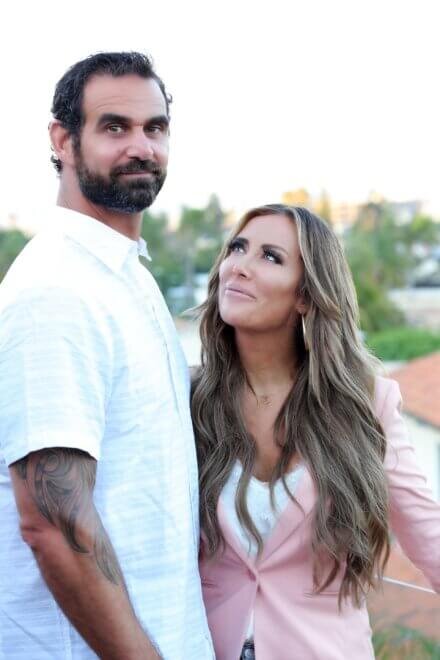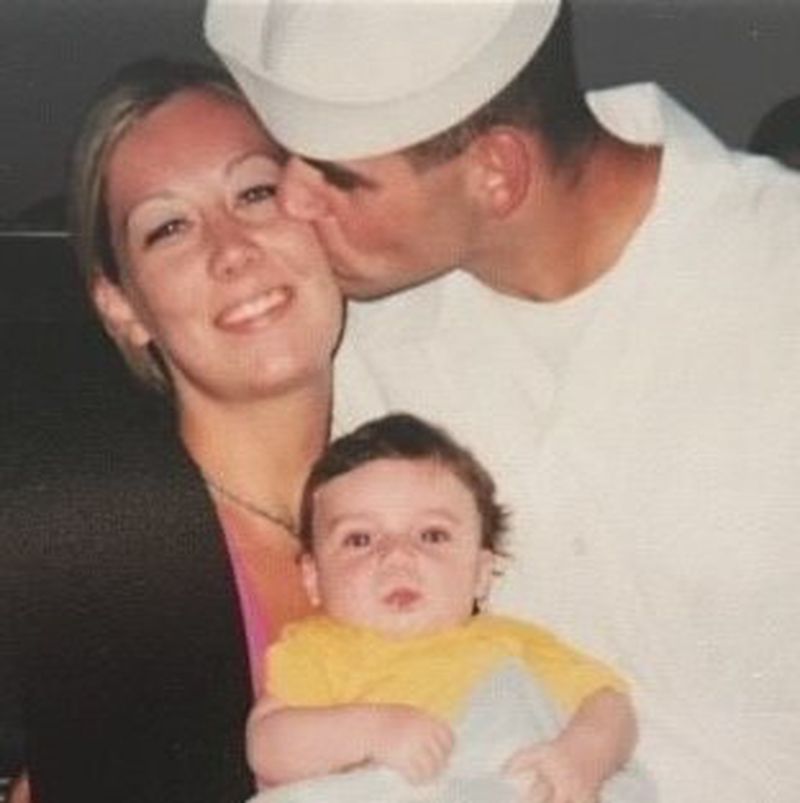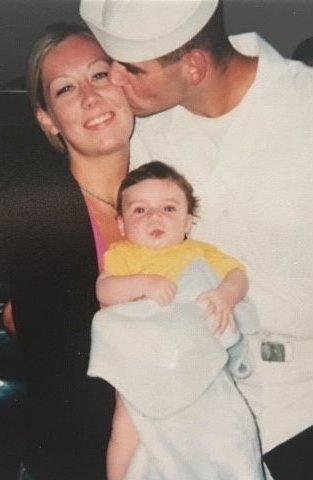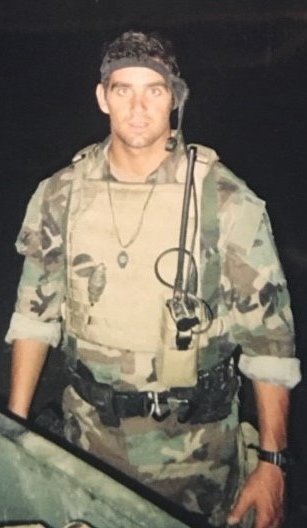I never saw war coming. Not 9/11, not the conflicts overseas, and certainly not the war that would begin in our own home when we transitioned out of the SEAL teams. The “war after the war” first began between Marcus and me. We were in regular opposition: confused, misinformed—passionate, but misaligned. I was great at shame, guilt, and threats, not realizing that no one wanted to change more than Marcus himself. He was great at lashing out and checking out, which made all the problems even worse. Thankfully, we realized that we are far better teammates than opponents, and together we began waging a war of our own—a war of healing. And not just healing for our own family, but for other veteran families like us.
Marcus and I have been together for 23 years, which, at this point, is over half our lives. During our thirteen years in the SEAL teams, we spent a lot of time apart, sometimes up to 300 days a year. Since much of our relationship was spent away from one another, I longed for the days when we’d become a “normal family.” I naively thought becoming that family would somehow happen upon separation from the military… oh boy, was I wrong!
The first couple of years post-military were extremely challenging—but some of this, I felt, was to be expected. What I didn’t expect was that each year would become increasingly more difficult. I also wasn’t prepared for the toll this would take on our marriage and family.
Another shocking surprise was the postmortem brain autopsy results of Marcus’s friend and former colleague. His suicide pathology report showed signs of Interface Astroglial Scarring, a pattern of microscopic injury resulting from exposure to blast waves in weapons fire and explosives. These results came out during the height of our struggles, and suddenly everything started to make sense. Marcus was dealing with something far more complex than PTSD, something that was completely beyond his control. This would explain the worsening of his symptoms and the escalating hardships.
Marcus had a history of 15 years of tackle football, followed by 13 years as a breacher. He’d experienced several instances of loss of consciousness, as well as countless subconcussive Traumatic Brain Injury (TBI) events. I knew time was of the essence, and worked tirelessly to find answers for his mounting challenges which included depression, anxiety, impulsivity, memory loss, sleeplessness, suicidal ideation, and headaches. He attended several brain clinics all around the U.S., none of which seemed to fully address the entirety of his suffering. With each failed treatment, he grew increasingly more frustrated and despondent.
I knew the life we were living was not sustainable, and yet I felt we’d exhausted every option. Saving Marcus was something that I was determined to do, but I was out of options, with no hope left. I’d put my children through enough hardship, so I made up my mind to leave Marcus, which is something I never wanted to do. Not only did this feel like a death sentence for him, but I still loved and longed for the happy, loveable, charismatic guy that I met and married two decades earlier.
Just as I was coming to terms with this gut-wrenching decision, I remembered a friend who’d had a psychedelic-assisted treatment outside of the United States. Suddenly, it seemed as though I had one more option to consider! I vowed to Marcus that if he’d try this, I’d fight for him every day for the rest of my life… but he had to fight alongside me. He agreed—and he has not stopped fighting since.
Needless to say, the treatment was a success! Neither of us had any clue about psychedelic-assisted therapies—we were just incredibly desperate and willing to consider anything. Marcus’s Ibogaine experience, followed by 5MeO-DMT, was the tourniquet that stopped the bleeding for our family. The treatment provided him with a deep psychological purging, completely stopped his urge to drink alcohol, and greatly improved his neurocognition. We were astounded!

In fact, we were so astounded that we immediately knew we needed to help others in our community who were also suffering. We began with a grassroots effort to prove the concept: twelve SEALs over a twelve month period to test efficacy and duration. The next goal was 100 Special Operations Veterans, coupled with research approved by the Institutional Review Board. Both goals were easily met and the indicators were clear—we had to take this message and mission forward.
In 2019, we incorporated VETS: Veterans Exploring Treatment Solutions, Inc. VETS provides resources, research, and advocacy to improve quality of life for U.S. Special Operations Combat Veterans (and their spouses) seeking psychedelic-assisted therapy alternatives. Our goal is to change veteran healthcare and END the suicide epidemic.
Since beginning our grassroots campaign in 2017, we’ve provided funding support to over 230 grant recipients, many of them on the brink of suicide. We are honored and humbled to take forth a message of HOPE & HEALING, and pay this incredible gift forward to others in need of a lifeline.
We often tell people that healing is like a stock market ticker… there will be ups and downs, but as long as you’re generally trending upward, that’s what matters! The medicine didn’t do the work for Marcus, but it allowed him to shift his perspective, address repressed emotions, create new habits and mindsets, and regain cognitive functioning. The lifestyle shifts and additional tools he’s utilized since his first psychedelic experience have also played a pivotal role in his remarkable rebound.
We are so grateful that we’ve been blessed with the passion and purpose to take this initiative forward, and we are continually humbled by the unwavering support from donors and foundations such as Dr. Bronner’s. Healing has been a remarkable gift, but paying that healing forward is an even greater blessing, and proving to be worth every day of suffering we endured.



